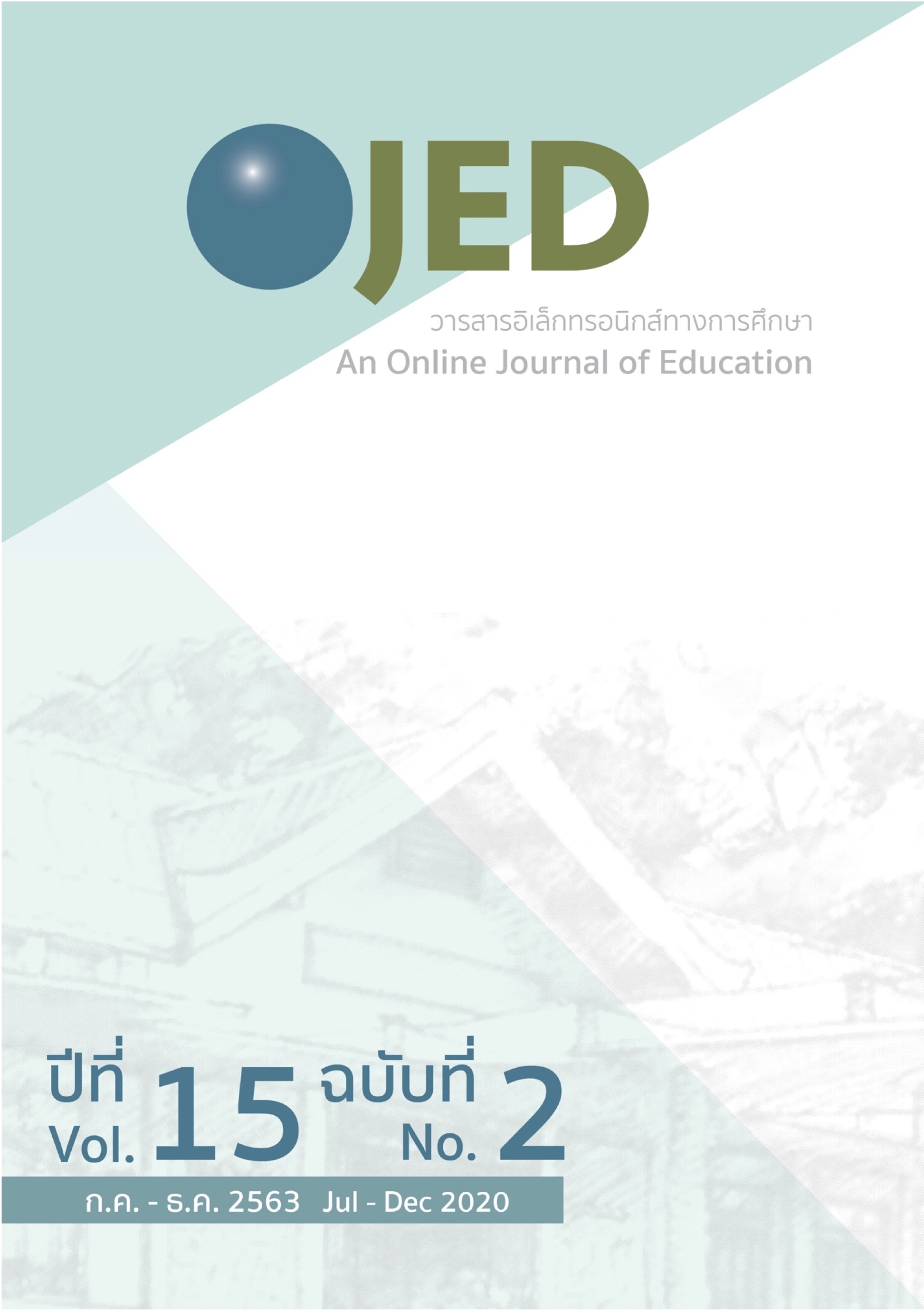Guidelines for Swimming Coaches according to the Long-term Development of Athletes for International Achievement
DOI:
https://doi.org/10.14456/ojed.2020.14Keywords:
Guide lines, Swimming Coaches, Long-term development of athletesAbstract
This qualitative research aims to study the practices of Thai swimming coaches according to long-term planning for the athletic development of athletes based on the main strategies of the Canadian Swimming Athletes Organization. The participants included swimming coaches with international experience. The key Informant was a swimming coach with good knowledge and understanding of the long-term development plans for athletes. Seven experts participated in this study. The researcher used a semi-structured interview form to collect data through audio and field recordings The questions consisted of 5 important components which were (1) physical, (2) technical, (3) strategy, (4) psychological and (5) lifestyle related; the inductive data analysis method and there Snowball Sampling Technique were employed. The four steps of data validation included: (1) data organization, (2) data code determination, (3) creation of a temporary summary, and (4) creation of an actual summary. The conclusions of this study were as follows: (1) physical conclusion: using aerobic training as a core; (2) technical conclusion: techniques are the most important steps in the process; (3) tactical conclusion: the idea that experience is the best development; (4) mental conclusion: the most important factor in sports is happiness in the sport itself; and (5) lifestyle conclusion: the factor of education is the most influential for athletes and parents who have influence on the athletes.
References
ณกร มีคำ. (2549). แรงจูงใจในการเลือกเล่นกีฬาว่ายน้ำของนักว่ายน้ำรุ่นอายุไม่เกิน 16 ปีสังกัดสโมสรในกรุงเทพมหานคร [วิทยานิพนธ์ปริญญามหาบัณฑิต ไม่ได้ตีพิมพ์]. มหาวิทยาลัยศรีนครินทรวิโรฒ.
ณัฐิกา เพ็งลี. (2545). ปัจจัยทางชีวิกลศาสตร์และสัดส่วนร่างกายที่มีอิทธิพลต่อสถิติการว่ายน้ำท่าวัดวาประเภทสปรินท์ในระยะ 50 เมตร [วิทยานิพนธ์ปริญญามหาบัณฑิต ไม่ได้ตีพิมพ์]. จุฬาลงกรณ์มหาวิทยาลัย.
พรพจน์ ไชยนอก และ ศักดิ์ชาย พิทักษ์วงศ์. (2555). การบูรณาการวิทยาศาสตร์การกีฬาเพื่อการฝึกซ้อมและการแข่งขันในนักกีฬาว่ายน้ำ. วารสารวิทยาศาสตร์การกีฬาและสุขภาพ, 13(2), 1-17.
Balyi, I., & Way, R. (2016). Canadian sport for life: Long-term athlete development 2.0. Canadian Sport Centres.
Fraser-Thomas, J., Côté, J., & Deakin, J. (2008). Examining adolescent sport dropout and prolonged engagement from a developmental perspective. Journal of Applied Sport Psychology, 20(3), 318-333. https://doi.org/10.1080/10413200802163549
Georgopoulos, N. A., Roupas, N. D., Theodoropoulou, A., Tsekouras, A., Vagenakis, A. G., & Markou, K. B. (2010). The influence of intensive physical training on growth and pubertal development in athletes. Annals of the New
York Academy of Sciences, 1205(1), 39-44. https://doi.org/10.1111/j.1749-6632.2010.05677.x
Grange, J., & Gordon, R. (2004). Sport England: Success is long term. Harold Fern House.
Jayanthi, N. A., Pinkham, C., Dugas L. R., Patrick, B., & LaBella, C. (2012). Sports specialization in young athletes: Evidence-based recommendations. Sports Health, 5(3), 251-257. https://doi.org/10.1177/1941738112464626
Jayanthi, N. A., LaBella, C. R., Fischer, D., Pasulka, J., & Dugas, L. R. (2015). Sports-specialized
intensive training and the risk of injury in young athletes: a clinical case-control study. The American Journal of
Sports Medicine, 43(4), 794-801. https://doi.org/10.1177/0363546514567298
Lovell, R. B. (1980). Adult learning. Halsted Press Wiley & Son.
McLeod, S. A. (2018). Erik Erikson's stages of psychosocial development. Simply Psychology. https://www.simplypsychology.org/Erik-Erikson.html
Downloads
Published
How to Cite
Issue
Section
License
Copyright (c) 2020 An Online Journal of Education

This work is licensed under a Creative Commons Attribution-NonCommercial-NoDerivatives 4.0 International License.




